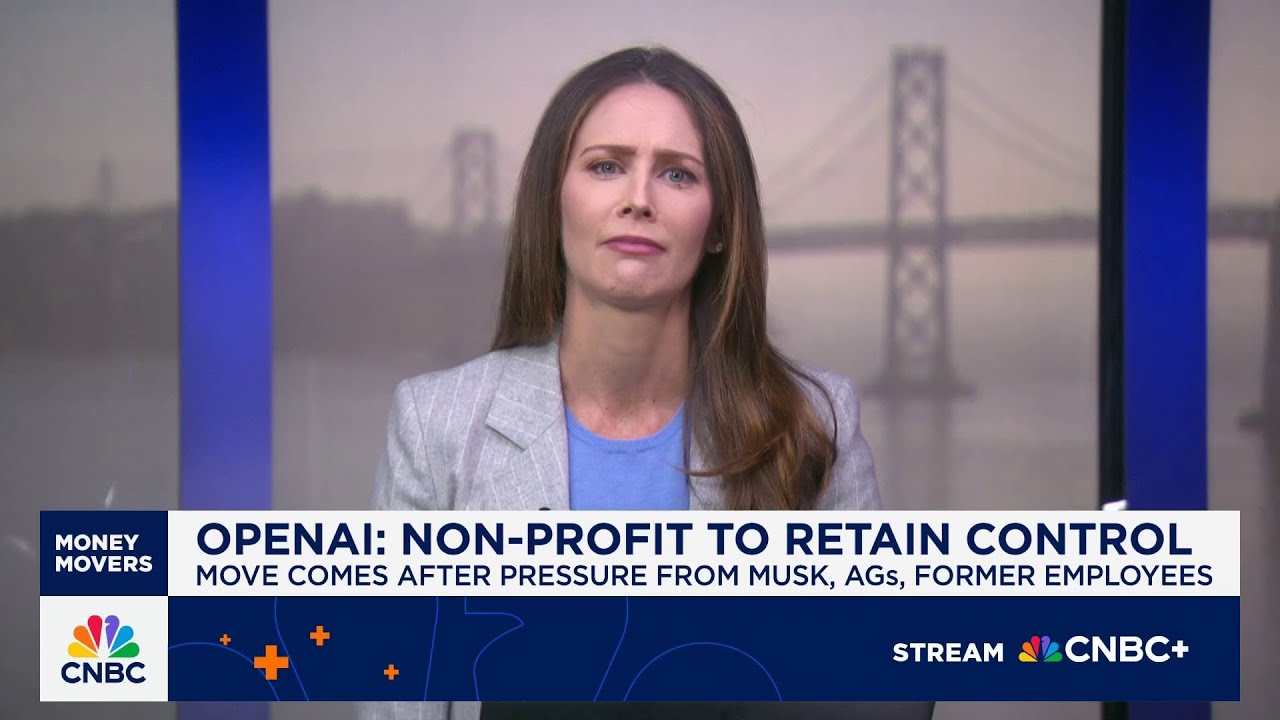OpenAI has decided to abandon its previous for-profit plans, instead restructuring as a public benefit corporation to balance its mission with financial growth, while keeping its nonprofit control. Despite concerns from investors like Elon Musk and some major backers, the company aims to secure sustainable growth and continue AI development under this new structure.
OpenAI has decided to abandon its previous plans to operate as a for-profit entity, opting instead to remain under the control of its nonprofit arm. This decision comes amid pushback from influential figures like Elon Musk and regulatory authorities in California and Delaware. The company will convert part of its structure into a public benefit corporation, which balances a mission-driven purpose with fiduciary responsibilities. This move also involves removing a cap on profits, allowing the company to potentially generate unlimited earnings while pursuing its AI goals.
Despite these structural changes, OpenAI will keep its nonprofit entity in control of the overall business and will retain a stake in the company. CEO Sam Altman and Chairman Bret Taylor explained that this concession was made after discussions with legal authorities and civic leaders. The goal was to set up OpenAI for sustainable growth while addressing concerns about its corporate hierarchy and profit motives. However, this decision has not satisfied all investors, who were hoping for a more straightforward for-profit model.
Elon Musk, a founding figure of OpenAI, has been a vocal critic and has been actively suing to block the company’s restructuring plans. Musk’s lawyers maintain that the recent updates do not alter their legal stance. OpenAI executives, including Altman and Taylor, emphasized that the decision was driven by a desire to secure the company’s future and mission, rather than as a response to Musk’s opposition. Altman highlighted the company’s focus on its AI mission, distancing the move from Musk’s criticisms.
Major investors like Microsoft and SoftBank are also involved in the ongoing negotiations. Microsoft, which has invested over $13 billion in OpenAI, is reportedly concerned about protecting its investment and is still working out the details of the restructuring. SoftBank, which had a clause allowing it to reduce its $30 billion investment if OpenAI did not become fully for-profit, has confirmed that it remains committed to the full amount. This indicates that SoftBank is still supportive of OpenAI’s new direction despite the changes.
Overall, the shift away from a for-profit model is seen as a setback for some investors who preferred a more traditional profit-driven approach. However, CEO Sam Altman remains optimistic, asserting that the new structure will not hinder OpenAI’s ability to raise significant capital—potentially trillions of dollars—and continue its AI development. Investors appear willing to accept these compromises as long as Altman maintains control and the company stays aligned with its core mission, ensuring its future growth and innovation in artificial intelligence.
